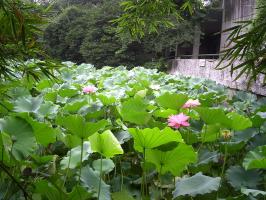Work Permit as "Green Cards" Change to Benefit Foreigners in Tibet
Lived in the Tibet autonomous region for six decades, Konchok Dargyi has long considered himself a local, but now, it's official.
The Nepalese citizen, who has been a resident of Lhasa, the regional capital, since he was born, was among 118 foreign residents who received a "green card" from the city authorities on Wednesday.
"Getting the permanent resident's permit makes us really happy," the 62-year-old said at the presentation ceremony. "Now we can enjoy health insurance like local residents do."
Foreigners wishing to work in the Tibet autonomous region will find it easier to apply from April 1 with the introduction of China's unified work permit, according to the local authority.
Zhao Yunhua, head of Tibet's foreign expert affairs bureau, said the new work permit will simplify procedures and reduce the amount of paperwork for foreigners applying for jobs in Tibet.
"In the past, expats in Tibet were required to complete paperwork for several separate government agencies including human resources, foreign affairs and public security, a process that could sometimes take months," said Zhao.
"Now the application process will be much easier and time efficient, because everything will go through the foreign experts affairs bureau."
After a work permit is issued, expatriates will receive a card with their identification number. This card will include the worker's name and photo, the period for which their permit is valid and their employer's name.
The unified work permit is being introduced as part of a nationwide reform which will combine the two types of work permits that are currently available for foreigners in China. As the country tries to streamline the application process and improve efficiency to attract more skilled foreign talent, the State Administration of Foreign Experts Affairs launched a trial in Beijing, Shanghai and Tianjin municipalities as well as in Hebei, Anhui, Shandong, Guangdong and Sichuan provinces and the Ningxia Hui autonomous region in October.
Under the current system, foreigners can apply for either an employment license issued by the Ministry of Human Resources and Social Security, or a foreign expert work permit provided by the State Administration of Foreign Experts Affairs.
One possible beneficiary from the new system could be the Lhasa Jingtu Men's Basketball Club, which has plans to introduce foreign players.
"We have been trying for two years to bring someone in but unfortunately, the application procedures were too complicated," said a member of staff at the club who wished to remain anonymous.
"This year, we plan to introduce two foreign players and with the new permit, I think we will succeed."
Zhao, from the foreign expert affairs bureau, said there was much demand for foreign talent in the region and they wanted to encourage more foreigners to come.
At present, there are about 200 foreigners working in Tibet. Eight are employed in scientific research and education and 183 work in the region's service industries such as restaurants and hotel management.














